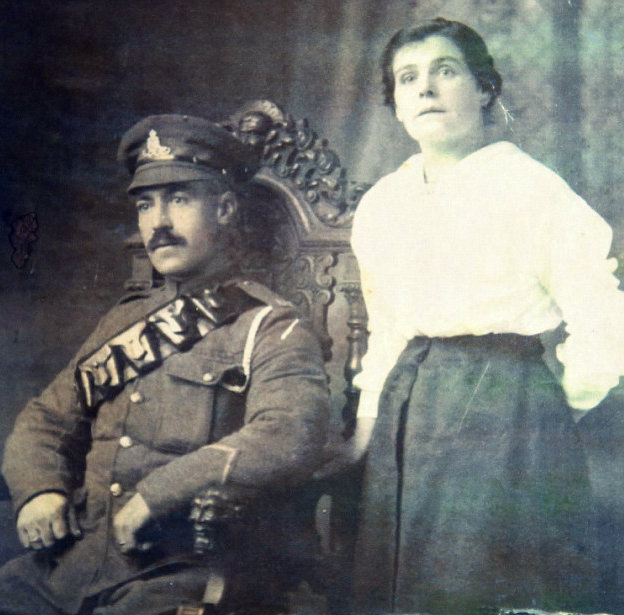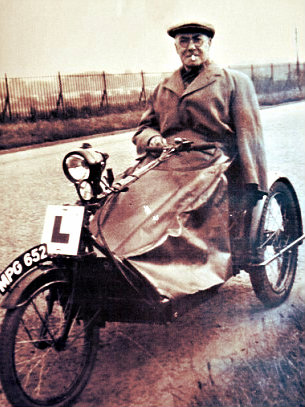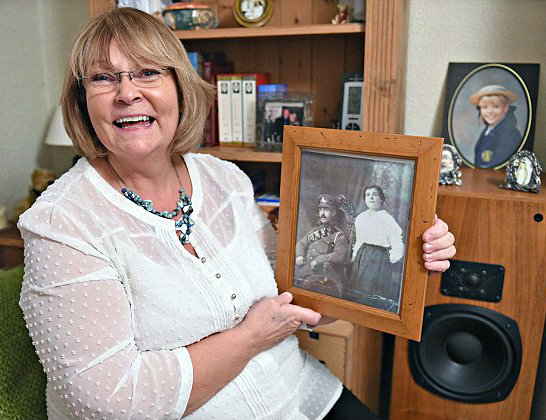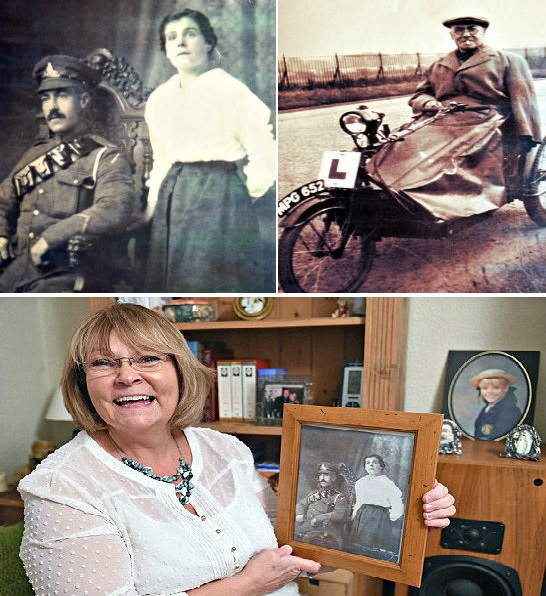When William Davies saw that his comrades were weak due to hunger and they were short on ammunition, he knew there was only one way for them to survive — steal from the Germans. And that he did in this extraordinary WWI tale of courage in the midst of hopelessness.
Getting to Know the Hero
William Davies was already 34 years old, married and the father of a brood of seven when he was called up to serve with the Royal Field Artillery in 1915. While in service, his comrades christened him with the pet name “Bunloaf” after the traditional fruit cake he got from his “nanny” back home and which he, in turn, shared amply among his buddies.
However, as February of 1918 rolled in, when the Great War was nearing its end, food in the front line trenches became scarce that the regiment William Davies belonged to ended up starving. So, on his own, the WWI soldier crawled across No Man’s Land to the German trenches and stole food to give to his mates.
According to Cathy Alderson, Mr. Davies’ granddaughter, her granddad crawled quietly under the blanket of darkness making his way on his stomach, elbows and knees under the barbed wired-No Man’s Land. He could hear the German soldiers talking but he paid no heed discreetly going to some of their supplies, took what he could, stuffed them under his battle dress and crawled his way back into his trench. Mrs. Alderson pointed out that to do such must have required a lot of courage.

A few weeks after that, William Davies and his regiment were moved close to the Somme, infamously known for claiming the lives of many British WWI soldiers. The move was made when the Battle of St. Quentin began. At that point, the Germans bombarded the positions of the Allies with over a million explosives. As a matter of fact, it was known to see some of the heaviest German bombings during the war.
At one time, William Davies was holding two horses and a copy of the Tit-Bit magazine. The magazine fell of the floor and as he was bending down to pick it up, a bomb crashed down on the position he was in instantaneously blowing up the horses he was holding along with the two WWI officers who were standing beside him. William Davies survived but he lost his left arm and lower leg.
Laying motionless in the middle of the blood and gore created by the shell’s explosion, a German soldier approached and tried to finish him off. Aside from losing two of his limbs, he was pierced with a bayonet in his neck.
Back home, Mrs. Davies received a telegram saying that her husband was believed to have died that day. However, the unbelievable happened.
Mrs. Alderson said that four days after the occurrence of the explosion, young American volunteer medics were sent to the area to retrieve the corpses. In what could have been a miracle, when they picked up the body of William Davies, they saw that his eyes were flickering. Mrs. Alderson, a retired Macmillan nurse, commented that her grandfather must have been hypothermic at that time as bodies, at time, last longer when the temperature’s freezing.
Immediately, William Davies was transported to an American hospital as the medics thought he was an American soldier for he was wearing an American soldier’s uniform. He had swapped his British uniform before the tragedy after a mustard gas attack. His affected leg had to be amputated mid-thigh. Eventually, William Davies was sent home and rehabilitated at Liverpool’s Alder Hey Hospital.
Honor to Whom It Is Due

William Davies received three WWI decorations for his feats during the war but according to Mrs. Alderson, his act of bravery was never formally recognized. So, she has taken the task to tell her grandfather’s story just in time for the 65th anniversary of his death which falls the next week.
Mrs. Alderson added that in spite of his injuries, her granddad’s re-adjustment to civilian life was fast. After coming home from the hospital, William Davies started to sell the local newspaper, the Liverpool Echo. He had his selling place, which was just outside the well-known Adelphi hotel, for two decades.
William Davies and his wife went on to have four more children after the war including Veronica, Mrs. Alderson’s mother, and her twin.
Mrs. Alderson described her grandfather as an extraordinary and humble man. She recounted how his comrades from trenches used to come to their home and talk about his extraordinary feats but William Davies just put them off saying that he had to do what he had got to do at that time.
Mrs. Alderson went on to say that this year, in the century commemoration of the outbreak of WWI, she heard a lot of brave stories from the relatives of WWI soldiers and how everyone are so touched by these accounts.

However, she was also struck at how, after the war, many of those WWI servicemen came home with great sufferings with some of them having to scrape together to get a living. Her grandfather was one of those men though they never heard him complain about it.
William Davies never really became free of the Great War after it ended. he died on December 9, 1949 at the age of 68. The cause of his death — lung complications brought about by exposure to mustard gas.
